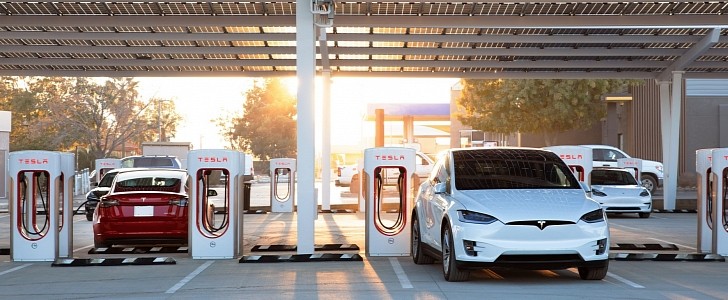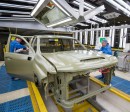As the Ukraine-Russia war ensues, things are getting thicker on the automotive market. Gas prices are at an all-time high, and raw materials needed to produce new units are getting scarce. The International Energy Agency has said the cost of electric vehicle batteries will increase by 15% if metal prices remain high, The Telegraph reported.
Russia is a crucial source of nickel required for the manufacturer of EV batteries. It supplies 20 percent of the metal to battery makers. Besides nickel, it's a top supplier of aluminum used in developing batteries.
The Eastern European country also accounts for 12 percent of crude oil exports, affecting the global gas price.
Russia's war in Ukraine is disrupting the supply of these metals and affecting the cost of critical components needed to produce electric vehicle batteries, including cobalt and nickel. As a result, battery manufacturers are forced to seek alternative sources that are often costlier.
Indonesia and the Philippines also produce nickel, but the mounting pressure is already causing constraints.
With gas pump prices surging and world governments setting strict regulations on ICEs, more and more consumers are considering switching to electric models. But there's a problem. Another critical component in battery development is lithium. It takes years to set up lithium mines, confining supply.
According to the IEA, the hikes in raw materials needed for battery production are the biggest obstacle for consumers looking to switch from ICEs to electric vehicles, closely followed by supply disruptions.
In January, the average price of a new vehicle in the U.S. was $45,000. Industry experts warn the price could increase with another manufacturing crisis. Faith Birol, executive director at IEA, said policymakers, industry executives, and investors need to be vigilant and resourceful to reduce the risks of supply interruptions, ensuring a sustainable supply of critical raw materials.
In 2021, EV global sales doubled to 6.6 million, making up about 10% of all vehicle sales. But the current raw material hikes and supply disruptions could slow the progress.
The Eastern European country also accounts for 12 percent of crude oil exports, affecting the global gas price.
Russia's war in Ukraine is disrupting the supply of these metals and affecting the cost of critical components needed to produce electric vehicle batteries, including cobalt and nickel. As a result, battery manufacturers are forced to seek alternative sources that are often costlier.
Indonesia and the Philippines also produce nickel, but the mounting pressure is already causing constraints.
With gas pump prices surging and world governments setting strict regulations on ICEs, more and more consumers are considering switching to electric models. But there's a problem. Another critical component in battery development is lithium. It takes years to set up lithium mines, confining supply.
According to the IEA, the hikes in raw materials needed for battery production are the biggest obstacle for consumers looking to switch from ICEs to electric vehicles, closely followed by supply disruptions.
In January, the average price of a new vehicle in the U.S. was $45,000. Industry experts warn the price could increase with another manufacturing crisis. Faith Birol, executive director at IEA, said policymakers, industry executives, and investors need to be vigilant and resourceful to reduce the risks of supply interruptions, ensuring a sustainable supply of critical raw materials.
In 2021, EV global sales doubled to 6.6 million, making up about 10% of all vehicle sales. But the current raw material hikes and supply disruptions could slow the progress.






